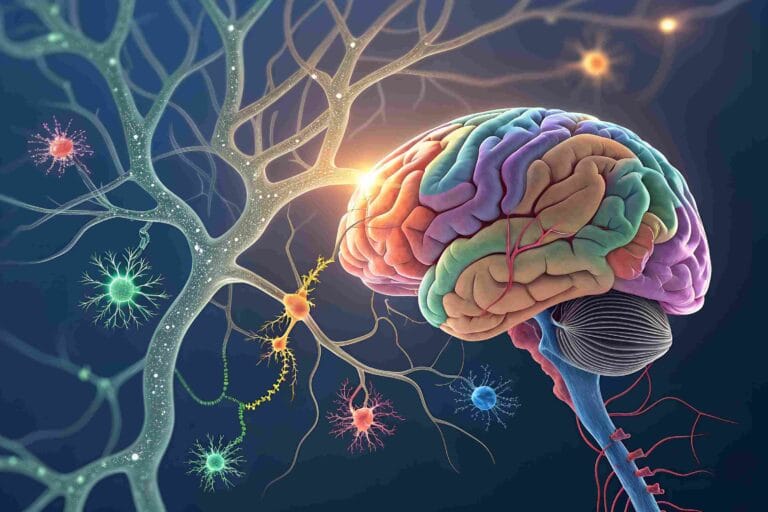Alzheimer’s and Hearing Loss: The Link
September marks World Alzheimer’s Month, the perfect time to raise awareness about the most common form of dementia and its impact on millions of families across the UK. Conversations about Alzheimer’s and hearing loss are crucial since they are now recognised as the single largest modifiable risk factor for dementia. While most people know Alzheimer’s disease as a condition that affects memory and thinking, fewer realise how it can also affect hearing and communication.
There are studies that show a strong association between them, suggesting that managing hearing loss could be an effective strategy for reducing dementia risk.
What Is Alzheimer’s Disease?
Alzheimer’s disease is the most common cause of dementia, a general term for a decline in cognitive and behavioural abilities severe enough to interfere with daily life. It accounts for around 60-70% of cases worldwide. According to a summary by NICE CKS, it was estimated that in 2019, there were almost 885,000 older people (aged 65 years and over) living with dementia in the UK. This number is expected to rise to almost 1.6 million as life expectancy increases and the main risk factor.
Alzheimer’s disease is named after Dr. Alois Alzheimer. The condition develops gradually due to the build-up of abnormal proteins in the brain known as amyloid plaques and tau tangles, which damage nerve cells and disrupt communication between different brain regions.
Key symptoms of Alzheimer’s include:
- Memory loss (especially short-term)
- Struggles with daily tasks
- Changes in mood or behaviour
- Confusion about time and place
- Difficulty finding words or following conversations
While memory loss is the hallmark symptom, Alzheimer’s and hearing loss are linked since it also disrupts how the brain processes sound and speech, creating challenges that feel very much like decline in hearing.
Dementia vs Hearing Loss: Understanding the Difference
When a loved one begins to struggle with conversations, it is natural to wonder: Is it dementia, or is it hearing loss? The two conditions often overlap, which can be confusing for families.
Hearing loss is caused by changes in the ear, whether age-related (known as presbycusis), noise damage, or earwax build-up. The sound signal itself isn’t reaching the brain clearly. In contrast, dementia, including Alzheimer’s disease, doesn’t damage the ear directly. Instead, it disrupts the way the brain interprets and makes sense of sound.
This means a person with Alzheimer’s may pass a hearing test but still struggle to understand conversations. This difficulty is linked to what professionals refer to as central auditory processing problems. The ears pick up the sound, but the brain cannot properly filter or decode it.
Everyday Examples Families Notice
- Background noise feels overwhelming: A busy café or TV in the background makes it impossible to focus.
- Repeated requests: They ask “what?” or “pardon?” more often, even though their hearing seems fine.
- Misunderstanding words: Simple terms like “coat” and “goat” sound the same.
- Withdrawing from groups: Frustration and embarrassment can lead to avoidance of social settings.
For many people, both conditions occur together. An older adult may have Alzheimer’s related processing difficulties and hearing loss which is mild, creating a double challenge. That is why it is so important not to dismiss these changes as “just old age.”
Why This Distinction Matters
Recognising whether difficulties are caused by hearing loss, dementia, or both helps families choose the right support. If the problem is hearing loss, hearing aids or wax removal can make communication easier immediately. If it is processing-related, families can adapt their communication style, minimise background distractions, and employ lifestyle strategies that reduce listening stress.
In either case, acknowledging the issue is the first step towards helping someone stay connected, confident, and included.

The Link Between Hearing Loss and Dementia
Over the past decade, scientists have discovered a significant link between hearing and brain health. What once seemed like two separate issues, now hearing loss and dementia, are now understood to be closely linked. In fact, research shows that hearing loss is one of the strongest modifiable risk factors for dementia, including Alzheimer’s disease.
What the Research Says
The Lancet Commission on Dementia (2020) highlighted untreated midlife hearing loss as contributing to around 8% of dementia cases worldwide. That makes it more significant than other well-known risks like smoking, high blood pressure, or even lack of exercise.
People with hearing loss are estimated to be up to five times more likely to develop dementia compared to those with normal hearing. This doesn’t mean hearing loss causes dementia, but it does make the brain more vulnerable to decline.
Why Hearing Loss Raises the Risk of Dementia
- Cognitive Load: When the ears don’t provide clear signals, the brain has to work harder to decode sounds. This extra effort leaves fewer resources available for memory, concentration, and decision-making.
- Brain Changes: Reduced auditory stimulation can cause shrinkage of parts of the brain involved in language and memory. Over time, this lack of input may accelerate cognitive decline.
- Social Isolation: Individuals with hearing difficulties often withdraw from conversations and group activities. Loneliness and reduced mental stimulation are known to speed up dementia progression.
Alzheimer’s and Hearing Loss – A Double Burden
For someone already living with Alzheimer’s disease, untreated hearing loss can make symptoms worse. Confusion deepens when they mishear conversations, and frustration can lead to withdrawal. Families may think their loved one’s dementia is “getting worse,” when part of the problem may be untreated hearing difficulties.

Lifestyle Guide: Supporting Someone with Alzheimer’s and Hearing Loss Issues
Living with Alzheimer’s is challenging enough. Adding hearing difficulties can feel overwhelming. But small, thoughtful lifestyle adjustments can make a huge difference for both the individual and their family.
At Home: Create a Hearing-Friendly Environment
- Reduce background noise: Turn off the TV or radio when talking.
- Use good lighting: Bright rooms help with lip-reading and facial expressions.
- Choose quiet spaces: Create a calm area for one-to-one conversations.
- Label items visually: Combine spoken words with written reminders for clarity.
In Conversations: Communication Tips That Work
- Face the person directly so they can see your lips and expressions.
- Speak slowly and clearly, shouting can distort sound.
- Use short, simple sentences and pause between phrases.
- Confirm gently, instead of saying “I told you already,” try “Let me explain again.”
- Be patient, allow extra time for responses.
Social Life and Mental Wellbeing
- Choose quieter venues for outings, a small café rather than a crowded pub.
- Encourage group activities that are dementia- and hearing-friendly, such as gentle walks, arts, or music groups.
- Music therapy; familiar songs can spark memory recall and joy, even when words are hard to follow.
- Keep routines consistent to reduce confusion and anxiety.
Using Hearing Aids and Assistive Devices
If hearing loss is confirmed, hearing aids can:
- Reduce the effort needed to listen.
- Improve clarity of speech.
- Keep the brain stimulated through sound.
Other assistive technologies also help:
- TV connectors for clearer sound without background noise.
- Amplified telephones to make phone calls easier.
- Alert systems (doorbells, alarms) with both sound and light signals.
Hearing Care as Part of Alzheimer’s Management
Good hearing care is not just about sound, it is about preserving independence, dignity, and social connection. For people with Alzheimer’s:
- Regular hearing tests ensure any changes are picked up early.
- Hearing aids may slow down cognitive decline.
- Audiologists can support both patients and families with tailored advice.
At Hear4U, we believe hearing care should be an integral part of dementia support, giving families more ways to stay connected.
When to Seek Extra Help
It is time to get professional advice if your loved one with Alzheimer’s:
- Finds communication increasingly stressful.
- Withdraws from family gatherings or social events.
- Struggles to use their hearing aids consistently.
- Shows sudden changes in hearing ability after illness or medication.
Alongside your GP or clinic, audiologists play a vital role in ensuring hearing issues don’t accelerate cognitive decline.
Awareness Brings Action
Alzheimer’s disease changes many aspects of daily life, but hearing does not have to be one of the biggest barriers. With the right awareness, practical strategies, and timely hearing care, families can greatly improve communication, confidence, and quality of life for their loved ones.
This Alzheimer’s Month let’s remember: every small step to support hearing is a step towards preserving connection, memory, and dignity.
FAQs
1. Can Alzheimer’s cause hearing loss?
Not directly. Alzheimer’s disease does not damage the ear in the same way age-related hearing loss (presbycusis) or noise exposure does. Instead, it affects the brain’s ability to process and interpret sound. This means a person may hear the sound clearly, but their brain struggles to decode words or filter speech from background noise. This is often called central auditory processing difficulty.
For example, someone with Alzheimer’s may pass a routine hearing test but still find conversations confusing. Families sometimes assume this means “their hearing is fine,” when in reality the challenge lies in how the brain is processing those sounds.
2. Why does someone with Alzheimer’s struggle in noisy places?
Busy environments like cafés, restaurants, or family gatherings can feel overwhelming for people with Alzheimer’s. The brain naturally filters out background noise so we can focus on one voice, but with dementia, this ability becomes much harder.
Instead of being able to tune into one speaker, every sound competes for attention: clinking glasses, multiple conversations, music, and background TV. As a result, the person may feel confused, mishear words, or withdraw completely.
This is not about being “antisocial”, it’s the brain working harder than it can manage. Reducing background noise and speaking in calmer settings can make conversations far easier and less stressful.
3. Do hearing aids help with Alzheimer’s patients?
Yes, when fitted correctly and supported with family involvement, hearing aids can make a significant difference. They:
- Reduce listening strain, allowing the brain to focus more on memory and conversation rather than decoding unclear sounds.
- Improve communication, making it easier for families and carers to connect in daily life.
- Maintain brain stimulation, which research suggests may help slow down cognitive decline.
It’s important to introduce hearing aids as early as possible. If left too late, adapting can feel overwhelming. Families should also ensure regular follow-ups with audiologists so the devices remain effective and comfortable.
4. What lifestyle changes make communication easier?
Families often underestimate how much of a difference small changes can make. A few key adjustments include:
- Speak face-to-face so the person can use lip-reading and expressions as extra cues.
- Use short, clear sentences with pauses in between.
- Reduce background distractions, turn off the TV, lower music, or move to a quieter space.
- Use visual aids and reminders such as written notes, labelled items, or gestures to support spoken words.
- Be patient and gentle, avoid phrases like “I already told you” and instead repeat information calmly.
These changes may feel small, but they can dramatically reduce frustration for both the person with Alzheimer’s and their loved ones.
5. Should families get regular hearing tests for loved ones with Alzheimer’s?
Absolutely. Hearing can change gradually, and without regular checks it’s easy to miss the signs. Routine hearing tests ensure that any hearing loss is detected and treated early, which supports better memory, mood, and communication.
For someone with Alzheimer’s, addressing hearing issues early can:
- Reduce feelings of isolation.
- Improve confidence in social situations.
- Prevent unnecessary frustration in daily conversations.
Audiologists also play a vital role in guiding families on how to combine hearing support with dementia care. At Hear4U, we often recommend annual checks, or sooner if families notice sudden changes in listening ability.
